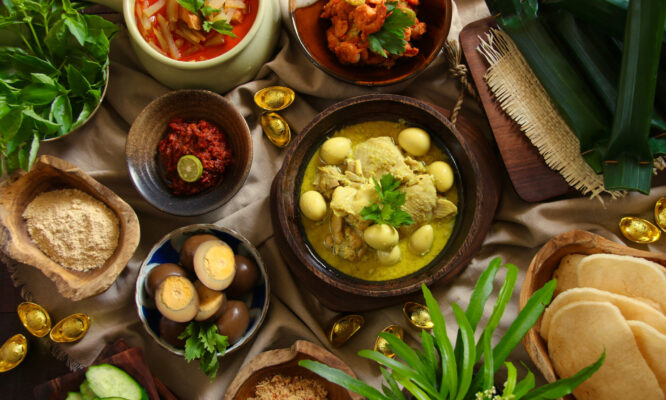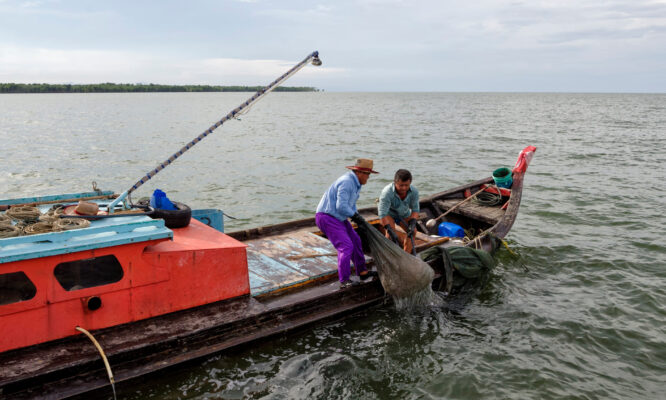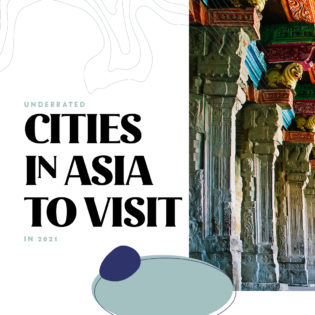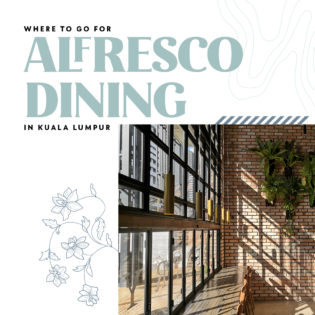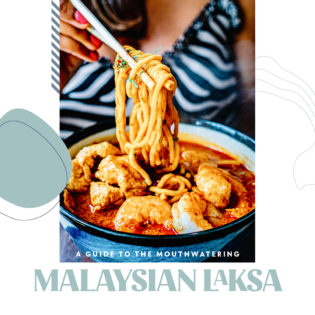This village lad from Thailand is making his culinary mark in Malaysia
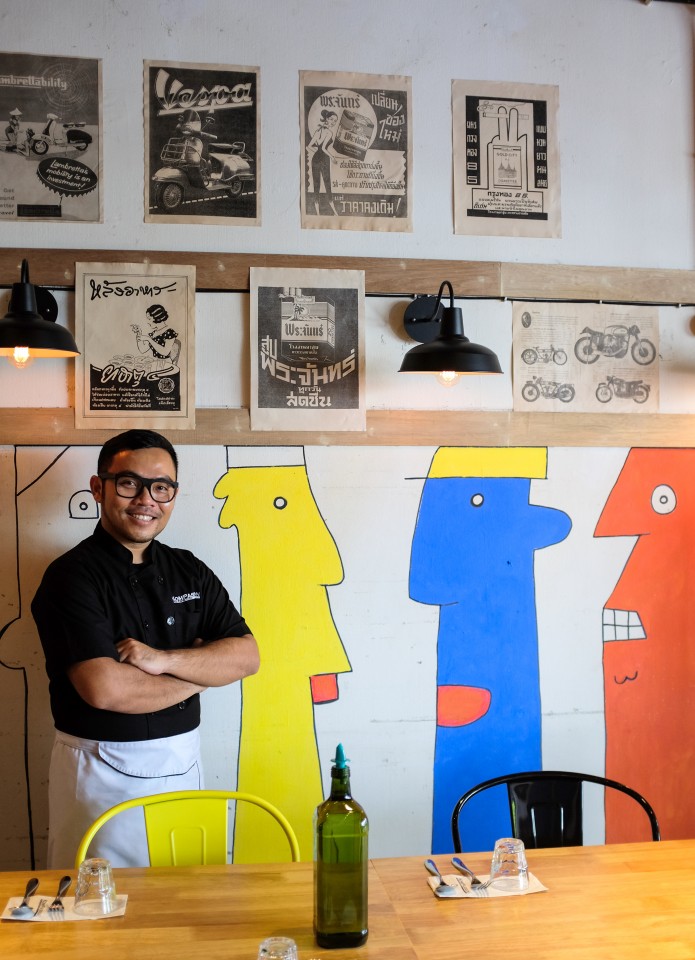
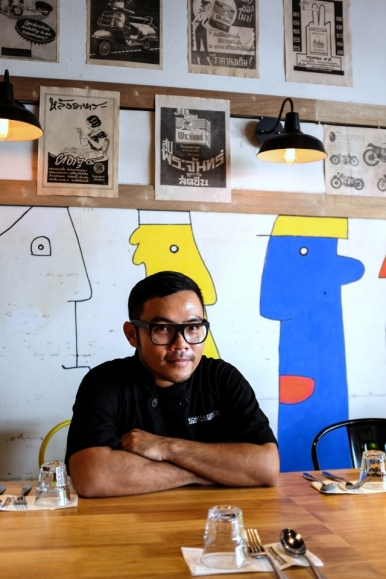
Nikom Uatthong was 20 years old when he left his riverside village in Thailand’s northernmost province of Chiang Rai, hunting for a better life in Malaysia. He couldn’t speak English beyond basic words like ‘yes’ and ‘no’. For his first year in Kuala Lumpur, he spent his days studying English and his nights selling papaya salad and tom yum noodles at a bazaar.
Sixteen years later, Nikom has firmly stamped his name as one of Malaysia’s top Thai chefs. Still only in his mid-30s, he’s been instrumental in creating some of KL’s most popular restaurants – Kompassion, which has two outposts that promise imaginative Thai fusion fare, and My Elephant, a brand with six branches that focus on mainstream Thai cooking.
It’s an impressive accomplishment for someone who first learned to cook out of necessity and had no formal culinary training. “My parents were farmers, and by the time they returned from the paddy fields, it would be late. So my mother taught me to cook for the family, to take care of my brother and sister,” Nikom recalls. “My first dish was a simple omelette. Then I moved on to stir-fried vegetables and curries.”
When Nikom came to Malaysia, he expected to work odd jobs, perhaps at a factory. But he found himself enjoying the experience of preparing food for his night market stall and receiving compliments from customers. Partnering with a Malaysian friend, he eventually leaped at the opportunity to open a small Thai restaurant called DooDee in downtown KL, but it survived barely two years.
“It failed because even though I knew how to cook, I was young and had no idea how to manage a restaurant kitchen,” Nikom admits.
Thankfully, he had a second chance, teaming up with a group of Malaysians who wanted to launch a suburban Thai restaurant in Petaling Jaya, a half-hour’s drive from KL. This time, he was determined to ensure that everything from his supply chain to his kitchen’s operating procedures proved irreproachable.
My Elephant, the new restaurant where Nikom was the founding chef, became a hit within weeks of opening in 2007, luring crowds that lined up for Nikom’s pad thai, salt-baked fish and duck curry with lychee – delicious and distinctive cuisine at fair prices.
“I really put my heart into creating the food,” Nikom declares. “Food has always been my art. I want people to enjoy beautiful food that tastes good – that is my vision all along.”
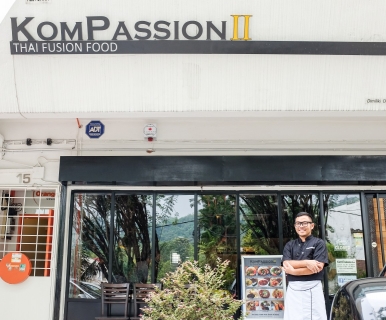
By 2013, My Elephant boasted multiple eateries, entrenched as a household name for Thai food enthusiasts. But Nikom was restless – he wanted to spearhead a restaurant that he could truly call his own, with a boldly original menu that pushed boundaries. So he collaborated with another set of Malaysians to helm Kompassion – named in part after ‘Kom’, which is what his friends call him – in the residential enclave of Damansara Jaya.
From the start, Kompassion’s repertoire was genre-defying, spanning chilled octopus with Thai herbs, chillies and lime; scallops in crimson phanaeng curry with salted duck slices; and cod fish in nutty massaman curry with crab meat and salmon pâté.
Nikom credits his love for travelling and his culinary curiosity for broadening his horizons. When he visited Turkey, he investigated how cooks spiced their lamb and prepared kebabs. He even hand-carried sumac back to Malaysia to use the lemony spice to flavour baked fish at Kompassion, which now has a second branch in KL’s Taman Tun Dr Ismail neighbourhood.
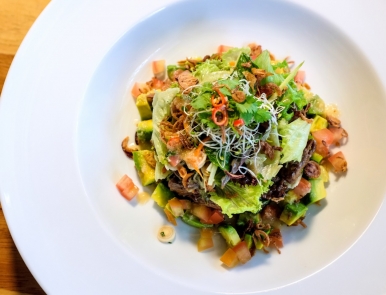
“Whenever I’m overseas, I go to many local restaurants. I’m not shy; I’ll ask the chefs there how they create their dishes,” Nikom says. “I also go to the villages, to see how they use their produce, like vegetables harvested in springtime. It’s really beautiful.”
Nikom’s other sources of inspiration, which he strives to infuse into his menu, include Indonesia (Balinese salads & chilli paste), Korea (kimchi and bulgogi sauce), Japan (miso and wasabi), as well as Europe. “I like using olive oil, and I’ve tried to learn to pair European wine with Asian fare,” Nikom adds.
He insists it’s possible to preserve the integrity of Thai gastronomy in a fusion-themed setting. “We can still keep the flavours. For example, I use avocadoes, which are very smooth in texture but have not much flavour. So I can add them to green curry, like our lobster green curry at Kompassion, without spoiling the curry’s flavour.”
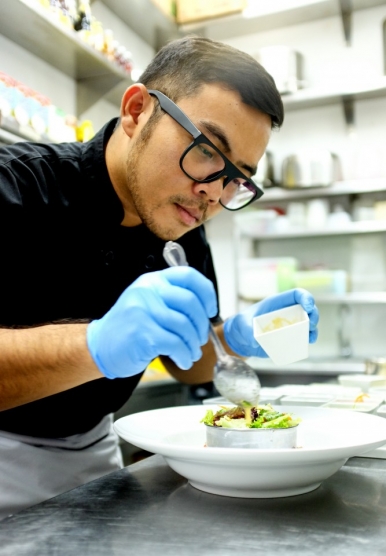
In the past year, Nikom has laboured to refine his craft by completing a nine-month course in cuisine at Le Cordon Bleu Malaysia, which taught him to work better with stocks and sauces. “It made me fall in love with French cuisine too,” he says.
Nikom tries to pass on his skills by training new cooks in his kitchens, including many Malaysians who come to KL from the Borneo states of Sabah and Sarawak to seek employment. He hopes to open at least one more Thai restaurant with an intriguing concept, like a farm-to-table menu or even Japanese-style omakase dining.
“Malaysia has become my home. This feels more like home now than Thailand. I’ve even learned to speak Malay,” Nikom says. “Every day, when I come to work, it’s a happy day for me. When I cook, I am happy.”
